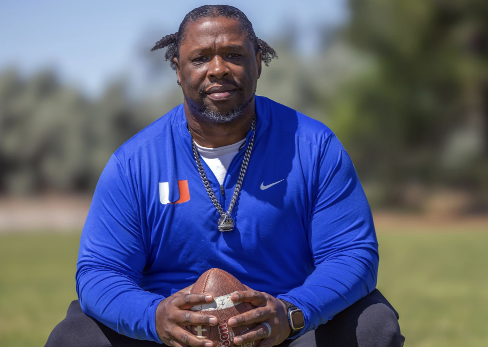Working out the balancing act of grandparenting
Published 12:00 am Sunday, October 1, 2023

- Close up of two adorable little girls reading kids book with Grandpa. Granddaughters in Visit Grandfather. bedtime stories concept.
There’s a lot of truth to the saying “It takes a village to raise a child.” I don’t know what I would have done without my support group when raising my kids. Often those supporters include grandparents — always ready to lend an ear, offer advice and show up in times of need. For many families, this relationship works out wonderfully for all involved; for others it can be stress-inducing, if one or both sides feel they are not being heard.
Grandparents bring their own experiences to the table and their personal story informs how they help. Parents want to set the rules for their children and often approach things a little differently than their own parents. So, how do grandparents find a balance between supporting an adult child and bonding with grandchildren? How do they respect each other’s wishes and rules without damaging the relationship — and what are the trigger issues?
When the C.S. Mott Children’s Hospital conducted its National Poll on Children’s Health it focused on what parents felt were the biggest issues between themselves and grandparents. It was interesting to see which topics were most important to today’s parents. The #1 concern for more than half of those polled was discipline — also my top concern, when raising my kids. Rounding out the poll’s top five concerns were: meals (44%), screen time (36%), manners (27%), and health and safety (25%).
So, a word to grandparents: before taking on child care duties, the best thing you can do is sit down with your adult child and their partner and ask how they prefer you to handle issues. When I was growing up, my grandmother was allowed to discipline me. However, my husband and I agreed that our parents would not be allowed to discipline, other than to have a talk if they witnessed dangerous behavior, such as running into the street. Having this talk early on and respecting parental wishes will make things easier when situations arise.
My friend Melissa is a caretaker by nature, a mother of four and grandma of three. She is an active helper with her grandkids and is quite used to being a strong presence in her adult children’s lives. When I asked how her children let her know they are unhappy, she said they simply talk to her. She admitted she did not always want to hear it, but she listens and respects their wishes. She tells me that her kids are great parents and that they always work through things when she oversteps.
When it comes to his mother’s involvement in child raising, Melissa’s son Bryce thinks it’s important to understand that parenting styles change. “I think it’s good to pass down some teachings from (grand)parent to parent,” he says, but not everything should carry over. “One of the harder things kids learn growing up is that our parents are just humans and humans can and do make mistakes.”
That’s a pretty solid observation and a good thing for adult children to keep in mind when they get frustrated with their parents. Grandparents are still learning in their new roles, so a little understanding and patience go a long way towards keeping relationships intact. It may take a little extra communication with in-laws to work through issues. Your partner’s parents bring their own style, so what you may view as controlling or judgmental, they see as being present and helpful. Understanding their true intentions will help you navigate the times when there are struggles.
To ensure smoother sailing, have open, honest conversations about the ground rules and try not to get defensive if you don’t fully agree. Open communication without leveling blame or accusations will keep the conversation productive. Small misunderstandings can expand when no one is talking or willing to take responsibility for their part.
Set boundaries – yes, even the grandparents have a right to boundaries. While grandparents want to help and have fun with the grandkids, they also have their own lives and commitments. I talked to one grandmother who said she felt as if her adult child and their spouse only wanted them involved when they needed something. When they couldn’t meet their expectations, the parents cut off access to the grandchild. It made her sad because that wasn’t how she raised her children or how they envisioned their role as grandparents.
What grandparents want most is for their grandchildren to be happy and healthy. Parents don’t stop being parents when a child comes of age, they simply change gears. As parents, you make the rules for child-raising. Grandparents are there to help you along the way and to build their own relationships with your children. Be clear about your expectations, but be flexible about what you stand firm on. Sometimes when Grandpa sneaks that extra cookie to their grandson, the shared giggles are worth letting the battle go.









